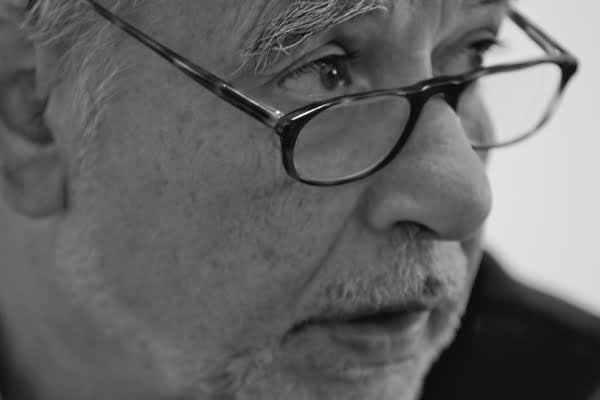
Tahar Ben Jelloun
Tahar Ben Jelloun was born in the Moroccan city of Fes in 1944. He went to the French grammar school in Tangier, and studied philosophy in Rabat. Initially a teacher, he then went on to join the circle of intellectuals and artists around »Souffles«, and its founder Abdellatif Laâbi in the mid-1960s. He published numerous texts in this cultural magazine. For his participation in the student rebellion against the repressive and violent acts of the Moroccan police in 1966 the young poet was punished by forced recruitment into a military camp. Five years later his first anthology of poems appeared: »Hommes sous linceul de silence« (tr: Humans in the Shrouds of Silence). Shortly afterwards he emigrated to Paris, where he became one of the leading spokesmen of the immigrants from North Africa.
Ben Jelloun became famous as a writer when his novel »L’enfant de sable« (Eng. »The Sand Child«, 1987) appeared in 1985. For the follow-up novel »La nuit sacrée« (1987; Eng. »The Sacred Night«, 1987) he was awarded the Prix Goncourt as the first Maghreb author ever. His novels are critical of many aspects in society and deal polemically with subjects such as racism and the kind of state and religious repression he experienced in his home country. He does not object to »Islam in terms of a beautiful culture and great civilisation«, insists Ben Jelloun, but is against those who »use Islam in order to control women and children«. In his novels Ben Jelloun often adopts the perspective of female protagonists, in order to shed a critical light on gender relations. »Les raisins de la galère« (1996; Eng. »The Fruits of Hard Work«, 1996) for example deals with the situation in the multiethnic suburbs of Paris, which are shaped by Muslim traditions. Nadia, the heroine of the story, is a Maghreb woman who fights for gender equality in the local authority and in her private life. The novel »Cette aveuglante absence de lumière« (2001; Eng. »This Blinding Absence of Light«, 2002) about a penal colony triggered a major debate in France about the regime of the Moroccan King Hassan, who died in 1999. His latest work, »Au pays« (2009; Eng. »A Palace in the Old Village«, 2011) is about the destiny of a Moroccan migrant and family father in France, who, when about to retire, tries to return to the village he once came from. His attempt is a rather absurd one. »A moving novel with Beckettian traits« (»Le Magazine Littéraire«). In a recent collection of texts bearing the title »L’étincelle« (2011; tr. The Spark) the author »praises the current revolution« (SZ) in the Arab world. In a recent publication, »Arabischer Frühling« (2011; tr.: Arab Spring, published in French a few weeks later in two volumes: »L’étincelle« (tr. The Spark) and »Par le feu« (tr. By the Fire)) the author »praised the current revolution « (SZ) in the Arab world.
Tahar Ben Jelloun received several literary awards. In addition to the Prix Goncourt the Irish IMPAC Prize, the Grand Prix Littéraire du Maghreb, and the Erich Maria Remarque Peace Prize 2011 were bestowed upon him. The author lives and works in Paris.
© internationales literaturfestival berlin
Die Nacht der Unschuld
Rotbuch
Berlin, 1988
[Ü: Eva Moldenauer]
Papa, was ist ein Fremder?
Rowohlt Berlin
Berlin, 1999
[Ü: Christiane Kayser]
Die Früchte der Wut
Berlin Verlag
Berlin, 2007
[Ü: Christiane Kayser]
Zurückkehren
Berlin Verlag
Berlin, 2010
[Ü: Christiane Kayser]
Arabischer Frühling
Berlin Verlag
Berlin, 2011
[Ü: Christiane Kayser]
